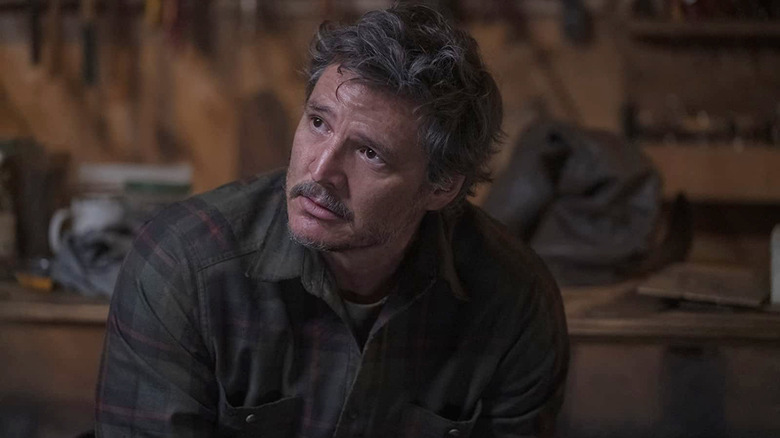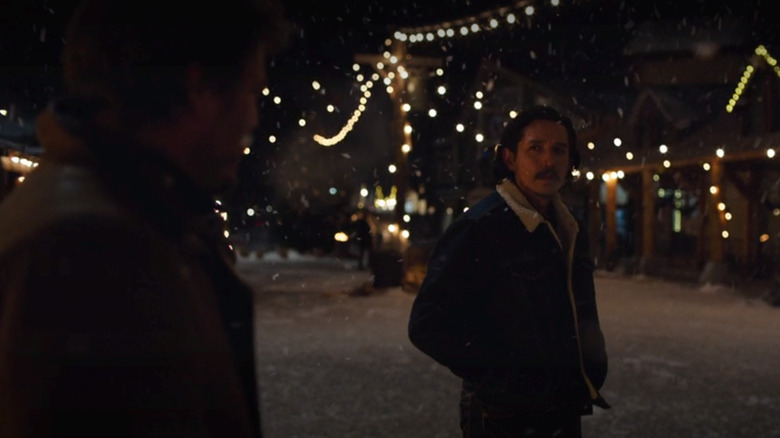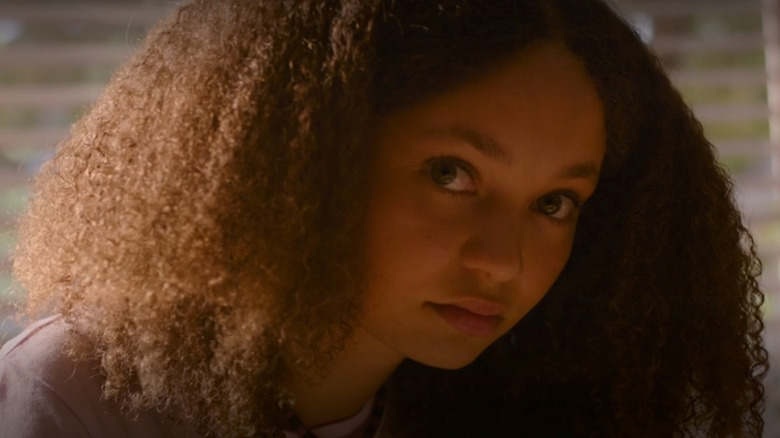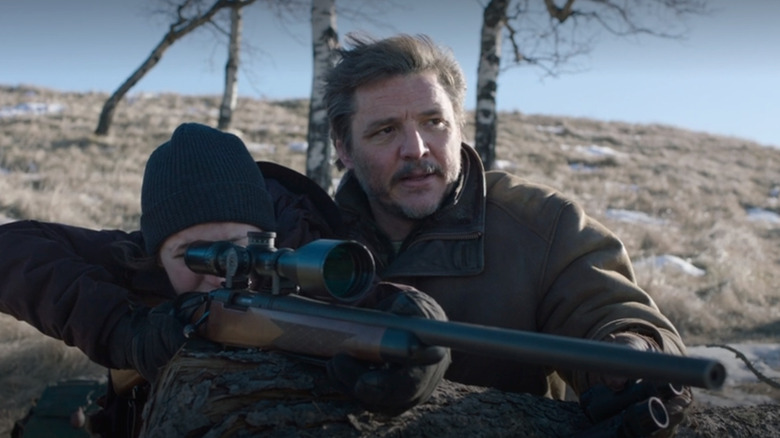Joel's Emotional Last Of Us Episode 6 Scene Proves That Pedro Pascal Can Do No Wrong
This post contains spoilers for "The Last of Us" season 1, episode 6, "Kin."
As a massive fan of the original games, one of the more rewarding aspects of watching "The Last of Us" be retold in live action is seeing lead actors Pedro Pascal and Bella Ramsey add their own personal flair to our beloved pair, Joel and Ellie. On paper, showrunners Craig Mazin and Neil Druckmann have kept the show extremely faithful to the original games, story, and characters. However, because Ramsey and Pascal were discouraged from playing the games before embodying their roles, they've been able to imbue their own subtle reinterpretations and trademarks into their performances.
Ramsey has consistently nailed it as Ellie, stealing every moment and dramatic beat of the series so far with a youthful pluckiness and emotional edge that is reminiscent of, but totally distinct from, Ashley Johnson's original motion-capture performance of the character. Pascal had always seemed like a natural fit for Joel, especially as an actor who has played his fair share of reluctant father figures ("The Mandalorian," "Prospect"). Shockingly, what Pascal has given to Joel in the show's first five episodes is a new, more realistic sense of softness and vulnerability.
In episode 6, Joel begins to experience panic attacks that he can't seem to shake off. This all culminates into one of the best scenes Pedro Pascal has performed in the series so far. As Joel reaches the Jackson Commune and reunites with his brother Tommy (Gabriel Luna), he tries to pass Ellie and their pursuit of the Fireflies onto him. As Joel explains why he can't keep going, we watch one of the most guarded and haunted characters of the show bare his soul like never before.
Pedro Pascal's softer approach to Joel
Obviously, Joel is still the cynical man with a dark past that we met in the original 2013 game. But, while game actor Troy Baker really leaned into Joel's coldness as a defense mechanism to avoid growing closer to his companion, Pedro Pascal's take on Joel remains strategically distant, but still affectionate/protective towards Ellie in his own awkward and stilted ways. Baker's Joel responds to Ellie shooting one of his attackers with an angry lecture about her irresponsibility before deciding to let her use a rifle. In contrast, Pascal's Joel apologizes for his failure to protect Ellie from the act of murder.
There's a similar dynamic happening here in the scene between Joel and Tommy in Jackson. In the original game, when Baker's take on Joel makes the proposal to impart Ellie and his quest on Tommy, the rejection leads to a screaming match between the brothers. In this moment, Baker's Joel regresses — he's reverted back to the violent man that was dedicated to protecting Tommy and his kin at all costs in the early days of the pandemic. To Joel, Tommys owes him for all those psychological scars. A combat sequence involving the brothers and a clash with Maria is ultimately what changes Tommy's mind.
This scene is approached almost completely differently in the show. Not only do we get to see way more of the Jackson Commune than we do in the game (directly evoking the sequel, "The Last of Us Part II"), but while the scene where Joel makes his proposal to Tommy begins similarly, there's a crucial shift into pure vulnerability that gives Pascal's Joel a whole lot more internality.
Joel is haunted by the loss he's faced in his life
Truthfully, Joel can't finish his quest and take Ellie to the Fireflies because he's scared. Ever since he reached Jackson, he's been suffering from panic attacks. Wherever he goes from here, he's haunted by the memories of his late daughter, Sarah (Nico Parker). He watches as a stranger that resembles his daughter decorates a Christmas tree in the town square, he hears his child's voice in Ellie's. The ghosts of his past are in full force as Joel reaches what he thinks to be the end of his road with Ellie.
This escalates in Joel's confession to Tommy. Joel is haunted by loss. If it's not Sarah, it's Tess. His friendship with Bill and Frank, or even his short lived bond with Henry and Sam. All Joel has ever wanted was to be a father and protector, and his failures are starting to take a toll on him. As much as he wouldn't like to admit it, he's grown to care for Ellie in his time with her, and he's completely lost faith in his ability to protect anyone by this point too. Despite every attempt to push her away, losing Ellie would be Joel's breaking point once again.
Pedro Pascal's performance in this scene is work of perfection. Here's a man who's deeply afraid of his own capacity to feel for anyone else, desperately trying to keep it together. It's like watching a parent cry for the first time; that feeling of watching someone who was previously this symbol of stoic-ness and strength revealed to be a deeply flawed, nuanced human being.
Pascal's performance fills in the gaps of Joel's character
Sure, all of these emotions were inherent to Troy Baker's Joel and were often left unspoken, as this is for the player to find out through the bond between them and the character. In a sense, one can argue that the game's portrayal of these internal feelings is much more sophisticated — but without the luxury of the time and space player interactions allow through gameplay, the show makes do by translating these characters thoughtfully for a different medium.
Pedro Pascal's Joel may seem a little more sensitive, but that's because this take on the character is much more identifiable and relatable in the format of a prestige TV series. It's fascinating, really. Objectively, these choices are distinct and should lead to game and TV Joel feeling like different characters, but really, both are just two halves that together form a complete whole.
The way Baker and Pascal's performances complement and inform each other is a beautiful example of how an adaptation can add more layers to a story.
"The Last of Us" airs Sundays on HBO.



